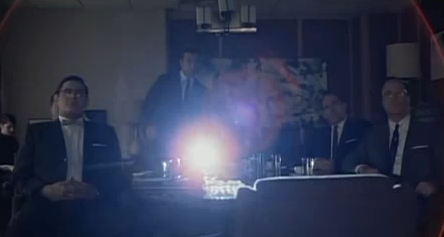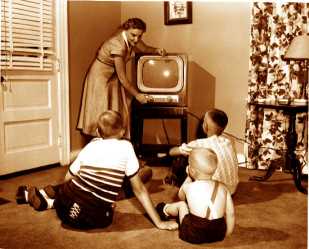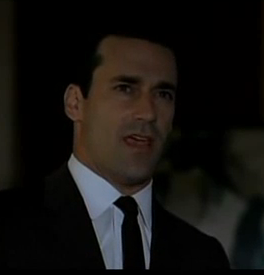 When news broke earlier that Twitter was working with some Hollywood types to develop a television series, the web nearly imploded on itself. Some assumed that the show would be about the people behind the scenes at Twitter, some thought they may have a chance to be on television because they use Twitter, some were outraged that Twitter would make a TV show rather than improving their own service, some thought it was Twitter openly endorsing the stalking of celebrities, most thought it was odd, to say the least. So Twitter co-founder Biz Stone weighed in to clarify a bit.
When news broke earlier that Twitter was working with some Hollywood types to develop a television series, the web nearly imploded on itself. Some assumed that the show would be about the people behind the scenes at Twitter, some thought they may have a chance to be on television because they use Twitter, some were outraged that Twitter would make a TV show rather than improving their own service, some thought it was Twitter openly endorsing the stalking of celebrities, most thought it was odd, to say the least. So Twitter co-founder Biz Stone weighed in to clarify a bit.
It’s simple really: Twitter has signed an agreement with a production company to allow them to develop a show based around the service. Stone was vague when it comes to specifics, but it reads like Twitter will have little if anything to do with the show, and really will just lend its name and likeness (perhaps even in the title). It’s similar to what the company has done in the past with Current (for Hack the Debate) and CNN (for its various shows that heavily use the service). And it’s similar to other projects that are in the works with a few other networks. But it’s still quite interesting for a few reasons.
First, from what Stone wrote, it sounds like Twitter hopes this will be the first of many shows built around the service. That’s interesting because it’s an extension of Twitter’s goal to be a powerful new platform. It already is one on the web, but that’s now expanding into different mediums, like television. And that’s notable because you don’t see many other startups — or even big web companies — make that jump.
 While the service has seen extreme growth in recent months, Twitter is still nowhere near the size of something like Facebook in terms of users (200+ million versus maybe 30 some million). But services such as that, or even Google, aren’t dictating the content of shows the way Twitter is now doing. Sure, these other services pop up on television shows from time to time to make cameos — and yes, there is a movie about Facebook in the works — but Twitter is a springboard which shows are being built around. That’s a notable difference.
While the service has seen extreme growth in recent months, Twitter is still nowhere near the size of something like Facebook in terms of users (200+ million versus maybe 30 some million). But services such as that, or even Google, aren’t dictating the content of shows the way Twitter is now doing. Sure, these other services pop up on television shows from time to time to make cameos — and yes, there is a movie about Facebook in the works — but Twitter is a springboard which shows are being built around. That’s a notable difference.
Second, one would assume that Twitter stands to benefit financially from such television deals. While it won’t be Twitter’s ultimate business-model, if a network were to pick up any Twitter show, the revenue split with Twitter would undoubtedly be more substantial than say, a partnership with a third-party website built on top of Twitter.
Third, this movement of Twitter into the entertainment sphere, does raise some interesting questions about Twitter versus TWiT (This Week In Tech), Leo Laporte’s popular video and podcasting network. This has been an issue in the past, but died down because ultimately TWiT and Twitter were in two different games. But if Twitter enters Laporte’s world, he may be moved to respond with his trademarks, as he noted yesterday.
“Twitter’s open approach might have the power to transform television—the dominant communications receiver worldwide,” Stone said of the news. That reads a bit arrogant, or at the very least presumptuous, and while it would be easy to immediately dismiss such a comment, it does speak to Twitter’s potential power as a platform. Because the service hasn’t yet bloated itself with the bells and whistles that other services have, and has stayed mostly true to its quick, mobile usage roots, it could be the one startup that is able to break out of the web service stigma. Yes, plenty of services have “mainstream” usage now, but those are still considered web properties that regular people just happen to use.
 We may not like to admit it, but it’s still just not considered very cool to use any of these services rather than say, actually meeting up with a group of friends in person. But we’re moving to a world where not only will using these services move beyond seeming like something that geeks do, but where you don’t even think about the notion of a “web service” or being “offline.” An ascension of Twitter into entertainment could hasten that. I’m not saying that it will — hell, the Twitter show could absolutely suck — but I am saying that no one is developing television shows entirely around Facebook.
We may not like to admit it, but it’s still just not considered very cool to use any of these services rather than say, actually meeting up with a group of friends in person. But we’re moving to a world where not only will using these services move beyond seeming like something that geeks do, but where you don’t even think about the notion of a “web service” or being “offline.” An ascension of Twitter into entertainment could hasten that. I’m not saying that it will — hell, the Twitter show could absolutely suck — but I am saying that no one is developing television shows entirely around Facebook.
It brings me back to perhaps my favorite scene from the television show Mad Men. While setting up his presentation for Kodak’s new Carousel slide projector, Don Draper says, “Technology is a glittering lure. But there’s the rare occassion when the public can be engaged on a level beyond flash. If they have a sentimental bond with the product.” For an increasing number of us, Twitter is starting to fall into that category. Whether the larger public can be engaged in the same way, remains to be seen. For now, it remains a glittering lure.